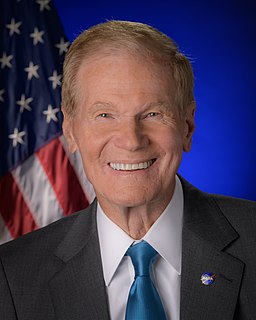A Quote by Ted Cruz
Voting for a candidate for the DC circuit is very different from confirming someone to the US Supreme Court. I have been very clear that the Senate should not confirm any nominee in a lame duck session.
Related Quotes
Now, President Obama has to make a decision. He can either propose a nominee who can win over the majority in the Senate or defer his choice to the voters, who in November will elect a new President and a new Senate, which will be responsible for confirming a nominee who will provide balance to the Supreme Court.
When it comes to the Supreme Court, the American people have only two times when they have any input into how our Constitution is interpreted and who will have the privilege to do so.First, we elect a president who has the power to nominate justices to the Supreme Court.Second, the people, acting through their representatives in the Senate, have their say on whether the president's nominee should in fact be confirmed.
The Constitution makes very clear what the obligation of the United States Senate is and what the obligation of the president of the United States is. To allow a Supreme Court position to remain vacant for well over a year cuts against what I think the intentions of the framers are and what the traditions of the Senate and the executive are.
Whoever is standing up telling the white man that his position is unjust and that the black people should not have to wait for any Supreme Court, Congress or Senate to legislate, or even the president to issue any kind of - of a proclamation to better the condition of our people, if a N - if he - if a, if a Negro leader is standing up, making that point clear, then he's all right with us.
When President Donald Trump nominated Judge Neil Gorsuch to serve on the Supreme Court, I said that he deserved a fair hearing and a vote. I said this even though Senate Republicans filibustered dozens of President Obama's judicial nominees and then stopped President Obama's Supreme Court nominee, Judge Merrick Garland.





























